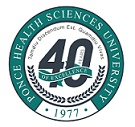Ponce Research Institute Discovers Link Between DNA Repair Capacity and Breast Cancer Risk
Industry: Education
Ponce, Puerto Rico (PRUnderground) November 29th, 2017
Dr. Jaime Matta, the head of the Cancer Biology Division at Ponce Research Institute in Ponce, Puerto Rico, has published a research article with the International Journal of Molecular Sciences entitled “Variability in DNA Repair Capacity Levels among Molecular Breast Cancer Subtypes”. The article provides the first ever findings of the correlation between DNA repair capacity and the significant molecular variability among the four principle breast cancer subtypes (Luminal A, Luminal B, HER2+, and Triple-negative).
“Dr. Matta is a world leader in breast cancer research,” says Dr. Kenira Thompson, the President of Ponce Research Institute and Vice President of Research at Ponce Health Sciences University (PHSU). “The findings in his new report could be pivotal in the development of new treatment strategies to improve a patient’s overall DNA repair capacity (DRC) as well as to explore new therapeutic avenues regarding the role of DNA repair in triple-negative breast cancer, which is one of the most difficult forms of breast cancer to treat.”.
Dr. Matta has been at the forefront of the study of the link between DNA repair capacity (DRC) and breast cancer for over 10 years. His studies from 2006 through 2017, which were funded by the National Institute of Health, identified the important role that a low DRC has on breast cancer risk and became some of the largest in the molecular epidemiology of breast cancer in the world. Among his conclusions was that for every percent unit of decrease in DRC, there’s a 64% more likelihood of developing breast cancer. This discovery gained added significance when he and Dr. Manuel Bayona, a professor in the public health program at Ponce Health Sciences University, developed a novel method of using DRC – based on analysis of blood lymphocytes – to calculate the risk of developing breast cancer. In 2012, Dr. Matta and Dr. Bayona were awarded a full utility patent by the United States Patent and Trademark Office on their method for using DRC as a biomarker of breast cancer risk in women.
“Our discovery of the link between DRC levels and breast cancer may help to prevent the disease indirectly by providing a roadmap for pharma and biotechnology companies to find compounds, both natural and man-made, that can increase the DRC in white blood cells,” says Dr. Matta, who is also a Professor of Pharmacology and Toxicology at PHSU School of Medicine. “We’re also hoping that our research can lead to the creation of a diagnostic kit that can predict breast cancer risk, even before the disease is present.”
About Ponce Health Sciences University
Ponce Health Sciences University (PHSU), a fully accredited university, is dedicated to providing the highest quality graduate education programs available in medicine, clinical psychology, biomedical sciences, and public health in order to prepare world-class, culturally competent health professionals to better serve a growing population of diverse patients across the United States. Located in Ponce, Puerto Rico, and St. Louis, MO, PHSU is recognized around the world for its educational service and research achievements.



